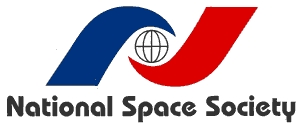Home > Press > National Space Society Calls For Less US Dependence On Russian Space Technology
 |
Abstract:
The Washington DC-based National Space Society (NSS) strongly recommends in a position paper issued today that Congress should fully support the Commercial Crew program in order to restore independent access to the International Space Station (ISS), prepare to operate the ISS without Russian support, again make low-cost access to space a primary goal of U.S. space policy, and avoid replacing the RD-180 engine manufactured in Russia with a single new engine funded via cost-plus development.
National Space Society Calls For Less US Dependence On Russian Space Technology
Washington, DC | Posted on July 15th, 2014NSS recommends that Congress should maintain competition among Commercial Crew providers while avoiding the imposition of additional contractual obstacles to this program. The U.S. must be self-sufficient in rocket engines for critical functions, both civilian and military. If Congress and the Administration decide a new rocket engine program is justified to replace the RD-180 (currently used in the Atlas V), it must result in multiple prototype liquid fueled hydrocarbon rocket engine development winners to promote competition and innovation and stimulate the entire U.S. aerospace industrial base. To increase affordability, to promote risk-sharing and to incentivize results instead of effort, the United States Government might use "other transactions authority" methods that were used to successfully develop the RS-68 and Merlin rocket engines.
Russia's Deputy Prime Minister Dmitry Rogozin has threatened to pull out of the ISS in 2020, after which the U.S. portion of the ISS would fall to Earth and be destroyed. Having been warned 6 years in advance, the United States should move systematically but immediately to develop commercial U.S. habitation and re-fuelable propulsion modules or other means of reboosting the ISS before 2020. Paul Werbos, NSS Executive Vice President, said "The US space program has become far too dependent on Russian technology. It is long past time to change that situation."
The position paper can be found at:
http://www.nss.org/legislative/positions/NSS_Position_Paper_Dependence_on_Russia_2014.pdf .
####
About National Space Society
NSS is an independent non-profit educational membership organization dedicated to the creation of a spacefaring civilization. NSS is widely acknowledged as the preeminent citizen's voice on space, with over 50 chapters in the United States and around the world. The Society publishes Ad Astra magazine, an award-winning periodical chronicling the most important developments in space. A bio for Paul Werbos can be found at http://www.nss.org/about/bios/werbos.html .
For more information, please click here
Contacts:
Lynne Zielinski
Phone: 202.429.1600
Copyright © National Space Society
If you have a comment, please Contact us.Issuers of news releases, not 7th Wave, Inc. or Nanotechnology Now, are solely responsible for the accuracy of the content.
| Related News Press |
News and information
![]() Researchers develop molecular qubits that communicate at telecom frequencies October 3rd, 2025
Researchers develop molecular qubits that communicate at telecom frequencies October 3rd, 2025
![]() Next-generation quantum communication October 3rd, 2025
Next-generation quantum communication October 3rd, 2025
![]() "Nanoreactor" cage uses visible light for catalytic and ultra-selective cross-cycloadditions October 3rd, 2025
"Nanoreactor" cage uses visible light for catalytic and ultra-selective cross-cycloadditions October 3rd, 2025
Govt.-Legislation/Regulation/Funding/Policy
![]() New imaging approach transforms study of bacterial biofilms August 8th, 2025
New imaging approach transforms study of bacterial biofilms August 8th, 2025
![]() Electrifying results shed light on graphene foam as a potential material for lab grown cartilage June 6th, 2025
Electrifying results shed light on graphene foam as a potential material for lab grown cartilage June 6th, 2025
![]() Institute for Nanoscience hosts annual proposal planning meeting May 16th, 2025
Institute for Nanoscience hosts annual proposal planning meeting May 16th, 2025
Announcements
![]() Rice membrane extracts lithium from brines with greater speed, less waste October 3rd, 2025
Rice membrane extracts lithium from brines with greater speed, less waste October 3rd, 2025
![]() Researchers develop molecular qubits that communicate at telecom frequencies October 3rd, 2025
Researchers develop molecular qubits that communicate at telecom frequencies October 3rd, 2025
![]() Next-generation quantum communication October 3rd, 2025
Next-generation quantum communication October 3rd, 2025
![]() "Nanoreactor" cage uses visible light for catalytic and ultra-selective cross-cycloadditions October 3rd, 2025
"Nanoreactor" cage uses visible light for catalytic and ultra-selective cross-cycloadditions October 3rd, 2025
Aerospace/Space
![]() ICFO researchers overcome long-standing bottleneck in single photon detection with twisted 2D materials August 8th, 2025
ICFO researchers overcome long-standing bottleneck in single photon detection with twisted 2D materials August 8th, 2025
![]() Onion-like nanoparticles found in aircraft exhaust May 14th, 2025
Onion-like nanoparticles found in aircraft exhaust May 14th, 2025
![]() The National Space Society Congratulates SpaceX on Starship’s 7th Test Flight: Latest Test of the Megarocket Hoped to Demonstrate a Number of New Technologies and Systems January 17th, 2025
The National Space Society Congratulates SpaceX on Starship’s 7th Test Flight: Latest Test of the Megarocket Hoped to Demonstrate a Number of New Technologies and Systems January 17th, 2025
Alliances/Trade associations/Partnerships/Distributorships
![]() Chicago Quantum Exchange welcomes six new partners highlighting quantum technology solutions, from Chicago and beyond September 23rd, 2022
Chicago Quantum Exchange welcomes six new partners highlighting quantum technology solutions, from Chicago and beyond September 23rd, 2022
![]() University of Illinois Chicago joins Brookhaven Lab's Quantum Center June 10th, 2022
University of Illinois Chicago joins Brookhaven Lab's Quantum Center June 10th, 2022
|
|
||
|
|
||
| The latest news from around the world, FREE | ||
|
|
||
|
|
||
| Premium Products | ||
|
|
||
|
Only the news you want to read!
Learn More |
||
|
|
||
|
Full-service, expert consulting
Learn More |
||
|
|
||








